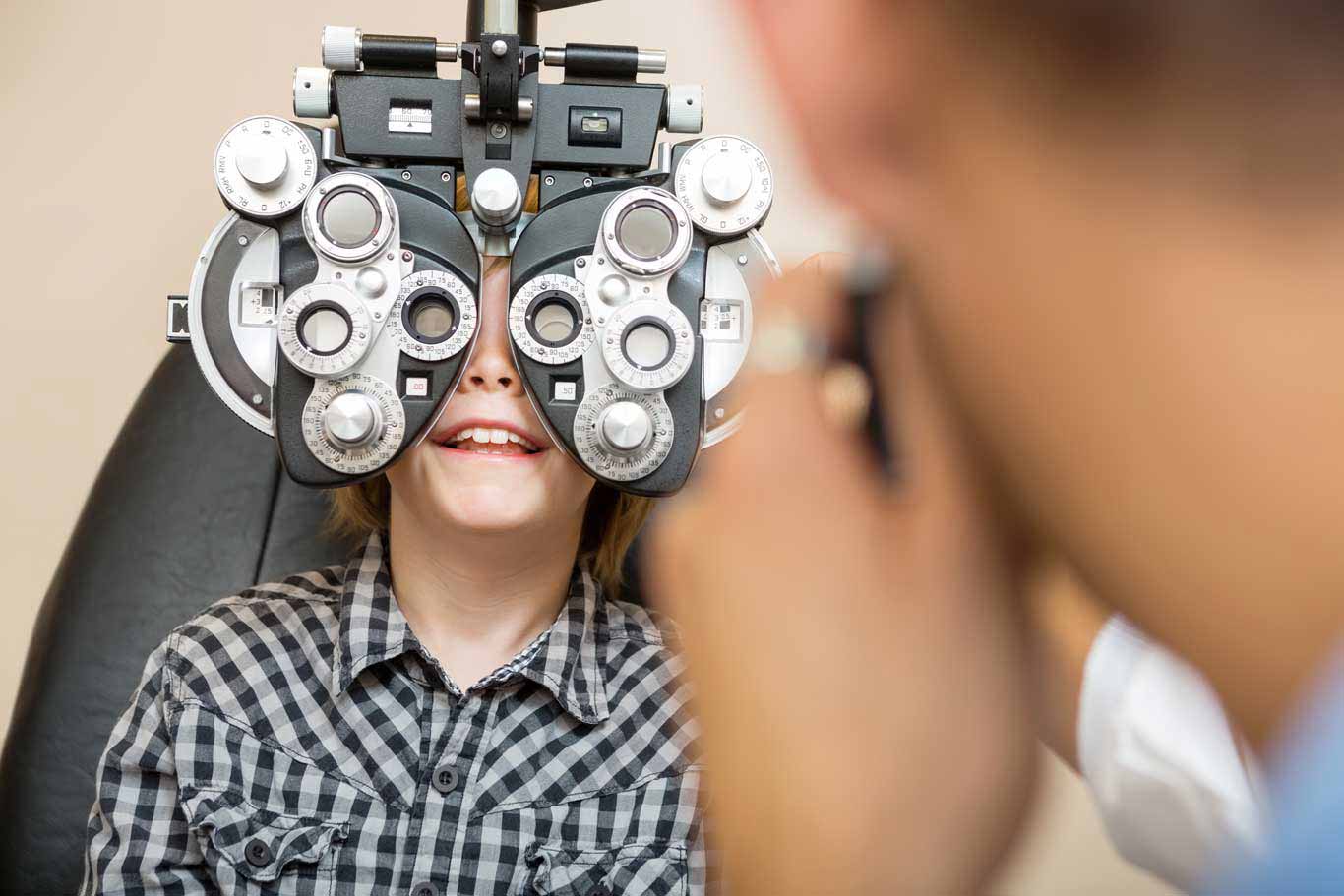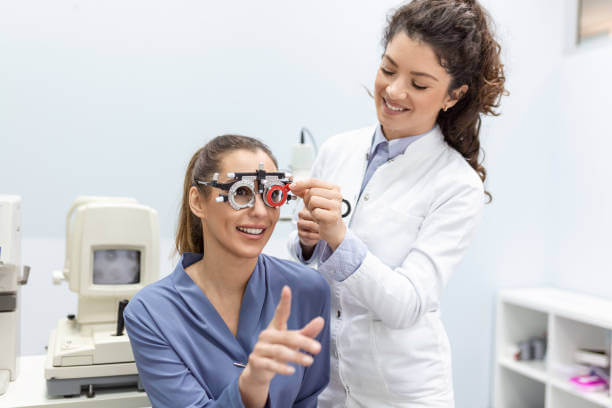Find an Optometrist Near Me for Your Eye Health
Find an Optometrist Near Me for Your Eye Health
Blog Article
The Significance of Regular Eye Exams: Insights From a Skilled Optometrist
Normal eye tests serve as a crucial element of healthcare that expands beyond simple vision modification. A seasoned eye medical professional can provide insights right into just how these assessments not only identify typical eye conditions but additionally disclose underlying wellness problems that might or else go unnoticed.
Benefits of Regular Eye Examinations
Although many individuals might ignore the relevance of regular eye exams, these analyses play a crucial duty in keeping overall health and wellness and well-being. Normal eye exams offer not just to examine vision however additionally to identify early signs of systemic health and wellness concerns, consisting of diabetes and high blood pressure. By determining these problems at their beginning, people can obtain prompt interventions, substantially boosting lasting outcomes.
Furthermore, eye examinations can aid in keeping track of existing wellness issues, making sure that any type of adjustments in vision or eye wellness are promptly dealt with (optometrist). The evaluations enable tailored referrals regarding eyewear, lifestyle modifications, and protective procedures versus possible eye pressure or damages
Beyond physical health and wellness, the advantages of regular eye exams reach enhancing quality of life. Boosted vision facilitates far better efficiency in day-to-day tasks, from checking out to driving, thereby adding to better freedom and safety and security. Inevitably, focusing on eye examinations fosters a proactive approach to wellness management, empowering people to organize their health. Normal examinations are an essential component of a thorough medical care method, making certain that both vision and total wellness are protected throughout life.
Common Eye Issues Detected
Normal eye exams are critical in finding a variety of usual eye conditions that can dramatically influence vision and overall wellness. Amongst the most widespread problems determined during these examinations are refractive mistakes, including nearsightedness (nearsightedness), hyperopia (farsightedness), and astigmatism. These problems commonly materialize as obscured vision and can be quickly fixed with prescription glasses or call lenses.
Furthermore, cataracts, which create clouding of the lens, are regularly identified in older grownups. This condition can lead to diminished vision and requires medical intervention for resolution. Another usual concern is glaucoma, a group of eye diseases that harm the optic nerve, typically linked to enhanced intraocular stress. Early detection is essential as it can protect against permanent vision loss.
Age-related macular deterioration (AMD) is an additional significant condition that impacts main vision, especially in people over 50. Ultimately, diabetic person retinopathy, a complication of diabetes, can result in serious vision disability if not kept track of on a regular basis. Via thorough eye tests, these problems can be recognized early, permitting for prompt monitoring and therapy to protect vision and enhance quality of life.
Importance of Early Discovery
Very early discovery of eye conditions plays a vital duty in preserving vision and protecting against substantial health and wellness difficulties. Several eye illness, such as glaucoma, diabetic retinopathy, and age-related macular deterioration, can advance calmly without obvious signs in their very early stages. By the time signs and symptoms materialize, irreversible damages may have occurred, bring about permanent vision loss.
Normal eye examinations facilitate very early diagnosis, enabling timely intervention and treatment. As an example, dealing with elevated intraocular pressure can prevent the beginning of glaucoma, while managing blood sugar level degrees can substantially reduce the danger of diabetic person retinopathy. Furthermore, problems like cataracts can be efficiently taken care of with surgical intervention when recognized early.

Just How Frequently Should You See?
Identifying the frequency of eye examinations is crucial for maintaining optimal eye health and vision. The general suggestion for grownups is to have a detailed eye test every one to 2 years, depending upon private threat elements and age. For people matured 18 to 60, an exam every two go to this web-site years is usually adequate if no vision troubles exist. However, those over 60 should think about yearly examinations, as the risk of age-related problems enhances dramatically.
Individuals with specific risk factors, such as a household history of eye disease, diabetic issues, or existing vision problems, might call for even more constant assessments. Youngsters should have their initial eye test at six months old, adhered to by extra tests at age 3 and prior to entering institution. Routine exams during youth are important as vision can alter swiftly throughout developing years.
Inevitably, the click resources regularity of brows through ought to be tailored per individual's circumstances, including way of living, work dangers, and any pre-existing eye conditions. Consulting with an eye care professional can supply tailored suggestions, making certain that your eye health is consistently checked and kept.
Tips for Your Eye Test
Planning for your eye exam can boost the effectiveness of the browse through and ensure a comprehensive assessment of your eye health and wellness. To optimize your time with the eye medical professional, it is critical to gather pertinent info before your consultation. Begin by putting together a listing of any kind of medicines you are currently taking, consisting of over the counter medications and supplements, as these can influence eye wellness.
In addition, record any signs and symptoms you have experienced, such as obscured vision, pain, or migraines. This details will certainly assist your eye doctor in detecting potential issues. If you use glasses or call lenses, bring them along, even if you do not use them routinely. This will assist the medical professional assess any adjustments in your vision.
It is also advantageous to have a family background of eye conditions handy, as genetic factors can add to your eye health. Lastly, take into consideration arranging your exam for a time when you are less rushed, enabling you to ask questions and review your problems thoroughly. By preparing properly, you make certain that your eye exam is productive and that your optometrist has all the needed info to provide the most effective treatment possible.

Final Thought
Regular eye tests play a crucial function in keeping both vision and general health and wellness. Eventually, prioritizing comprehensive eye analyses contributes considerably to the conservation of vision and the improvement of high quality of life, underlining the need of routine eye care in preventative health care approaches.
Regular eye Full Report examinations are critical in finding a range of common eye conditions that can significantly affect vision and total health.Figuring out the regularity of eye tests is necessary for maintaining optimal eye wellness and vision.Preparing for your eye test can enhance the performance of the visit and make certain a thorough evaluation of your eye health (optometrist). By preparing effectively, you make sure that your eye exam is effective and that your eye physician has all the needed info to offer the best treatment feasible
Inevitably, prioritizing comprehensive eye examinations contributes significantly to the preservation of vision and the renovation of quality of life, underscoring the need of regular eye care in preventive medical care approaches.
Report this page